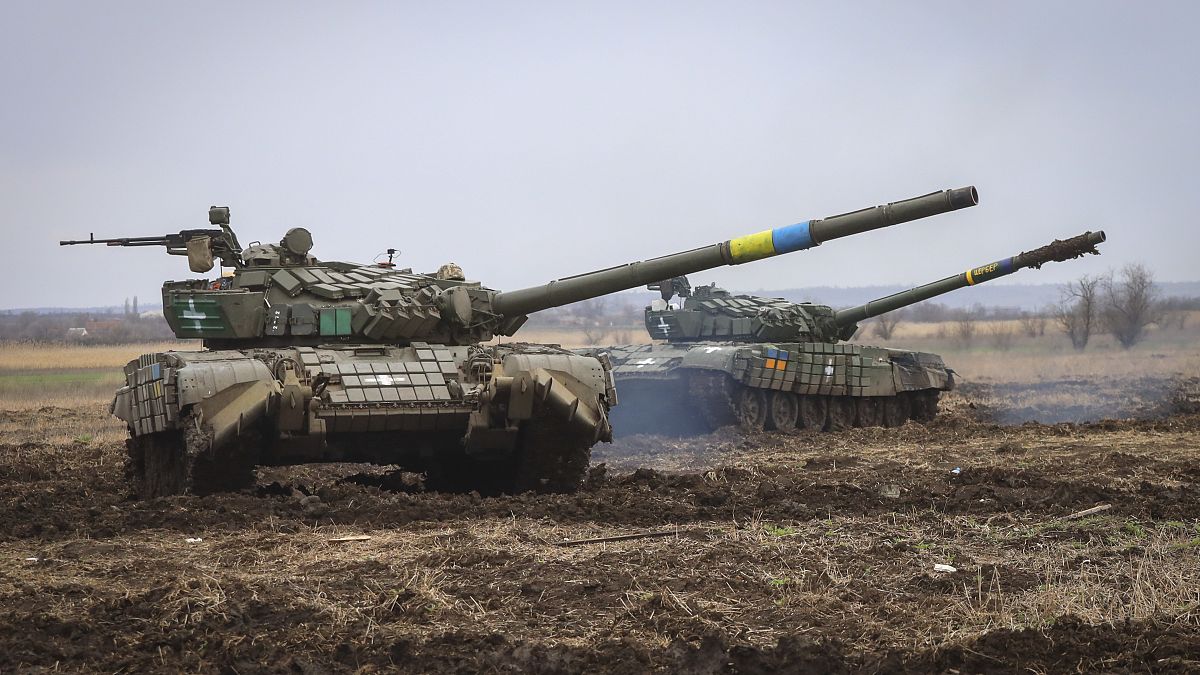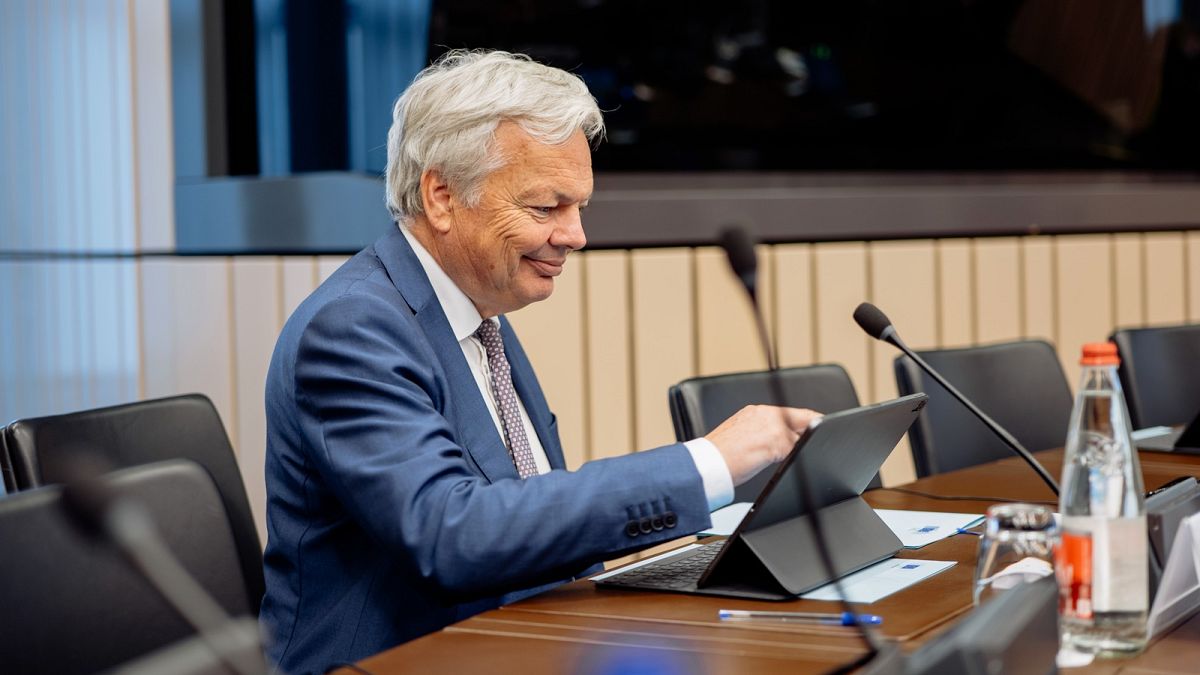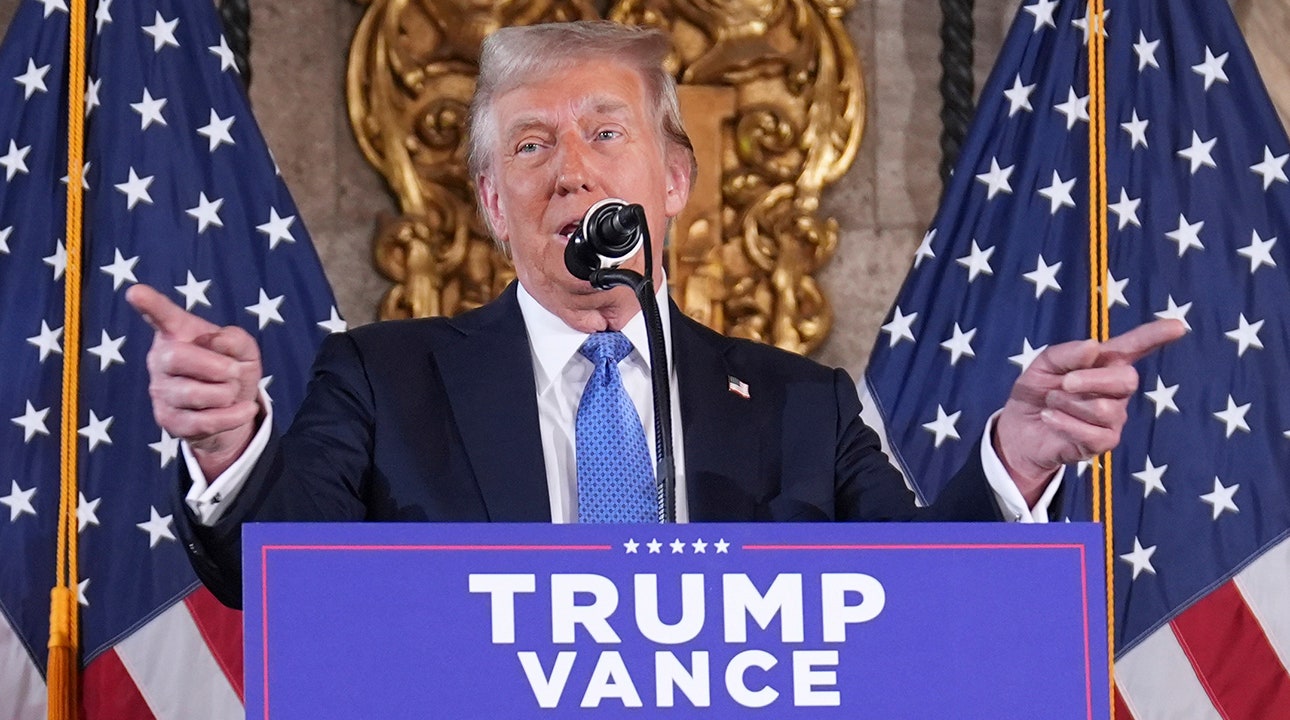World
NGOs collect over 260,000 signatures to protect Spain’s Doñana park
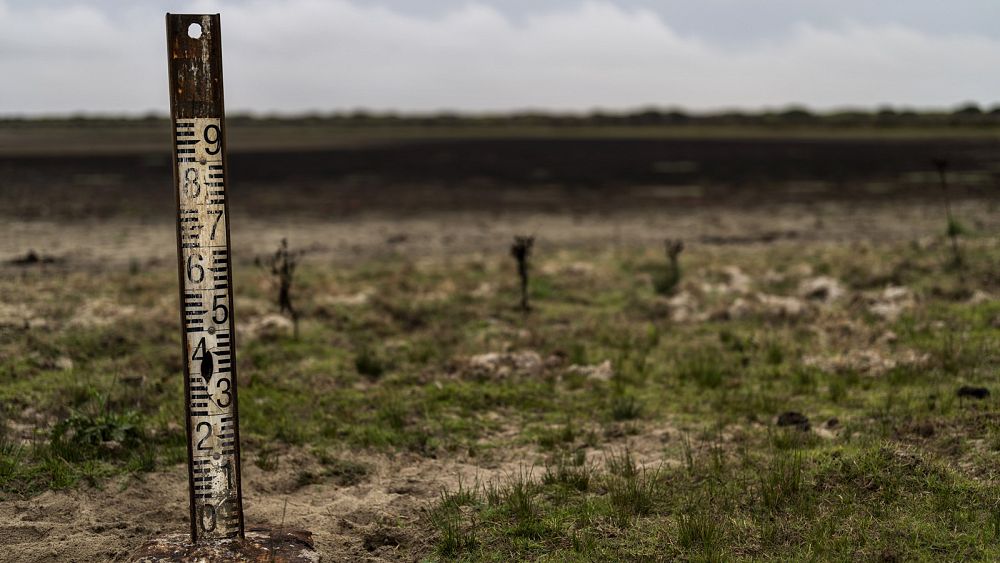
A group of NGOs has handed the European Commission a petition with more than 260,000 signatures to protect Spain’s Doñana National Park.
The organisations believe the park is under threat by a draft law submitted by the right-wing government of Andalucía, which would significantly expand the areas of irrigation for local farmers.
The proposed legislation has unleashed a political storm, pitting Spain’s progressive parties, which control the central government and forcefully oppose the Andalusian measure, and the conservatives, which recently made gains in local elections.
The dispute reached Brussels after the European Commission publicly voiced concerns about the plans and urged the Spanish authorities to abide by a ruling issued in 2021 by the European Court of Justice.
The court had condemned Spain for failing to adequately protect the park against “excessive abstraction of water” and the ensuing damage to its habitats.
Doñana, which has the legal category of a natural reserve, is renowned for its unique ecosystems and rich wildlife, including endangered species like the Iberian lynx. It also represents an important route for millions of birds that every year migrate from Northern Europe to Africa every year.
But this rich biodiversity has for decades been under the pressure of intensive farming, over-exploitation, the draining of marshes, the prevalence of illegal wells and the continued influx of tourists, adding to the woes caused by climate change.
The draft law has further compounded the anxiety about the park’s future as reflected in the 262,728 signatures gathered by the Ecologistas en Acción, Salvemos Doñana, SEO/BirdLife, Wemove and the World Wildlife Fund (WWF).
The NGOs met on Wednesday afternoon with Virginijus Sinkevičius, the European Commissioner for the environment, and personally handed him the collection of signatures, in a direct appeal for action to safeguard Doñana’s aquifers.
“We want to stop this law. We came here because we want to stop it. And we’re going to do everything possible,” Nuria Blázquez, from Ecologistas en Acción, told Euronews before heading to the meeting.
“If we don’t stop it before it’s approved, it’ll be stopped by the European Commission or the Spanish people because we cannot allow the destruction of Doñana.”
The NGOs called on Sinkevičius, who has spoken in defence of the natural reserve, to take legal steps but the executive cannot launch a formal case until the law goes through the Andalusian parliament and enters into force.
The legislative process is currently on hold, pending the snap general elections scheduled to be held on 23 July.
Juan Manuel Moreno, the premier of the Andalusian government, said last week he was open to the “possibility of including modifications that could improve the legal text,” even if the period to table amendments has already passed.
“No position should be immovable,” Moreno said.
The premier, however, defended the essence of the law and argued it was necessary to “provide an answer” to around 1,500 farmers who today work in legal limbo and whose harvests suffer from persistent drought.
The agricultural production in Doñana has a strong focus on red fruits like strawberries, which require consistent and abundant irrigation.
Moreno has previously said the expansion of watering areas would cover between 700 and 800 hectares. But according to an estimation released by WWF, the law, in its proposed form, would legalise up to 1,900 hectares.
The NGOs have used the new figure to support their opposition campaign against what they call an “ecological attack” on one of Europe’s most important wetlands.
“Politicians have a short-term view of winning elections every four years. You have to have a long-term vision. Today, you have to be coherent with what the experts say and what’s going on: we’re going to have less water, we’re going to have higher temperatures,” said Felipe Fuentelsaz, from World Wildlife Fund Spain.
“Therefore, betting on economic activities that necessitate an intensive usage of water means taking a step back. It’s a step back.”

World
TVLine Items: From Blood and Ash TV Series, Kelly Clarkson Renewed and More

ad
World
Trump says Turkey ‘did an unfriendly takeover’ in Syria as US-brokered cease-fire appears to fail

President-elect Trump on Monday described the recent fall of the Bashar al-Assad regime as an “unfriendly takeover” orchestrated by Turkey.
“I think Turkey is very smart,” he said from a press conference at his Florida residence. “Turkey did an unfriendly takeover, without a lot of lives being lost. I can say that Assad was a butcher, what he did to children.”
Assad fled to Russia just over a week ago after the al Qaeda-derived organization dubbed Hay’at Tahrir al-Sham (HTS) rapidly took over western Syria in an offensive that began on Nov. 27, first taking Aleppo, Hama and Homsc, before seizing the capital city of Damascus.
Rebel forces seized Mengh Airbase and the city of Tel Rifaat in the Aleppo countryside on Dec. 1, 2024. (Rami Alsayed/NurPhoto via Getty Images)
ASSAD PAINTS HIMSELF AS ‘CUSTODIAN’ TO SYRIA AS PICTURE UNFOLDS ON COLLAPSE OF DAMASCUS
The future of Syria, for both its government and its people, remains unclear as the HTS organization, deemed a terrorist network by the U.S. but which has the backing of the Turkey-supported Syrian National Army (SNA), looks to hold on to power.
The fall of the Assad regime has meant an end to the nearly 14-year civil war that plagued the nation, though the threat against the U.S.- backed Kurdish-led Syrian Democratic Forces (SDF) is not over as Turkey continues to view it as one of its chief regional adversaries.
The SDF have assisted the U.S. in its fight against ISIS for more than a decade, but Turkey, which shares a border with Syria, has long viewed the group as being affiliated with the extremist Kurdistan Workers’ Party (PKK), and which, through the SNA, has clashed with the Kurdish-led forces.
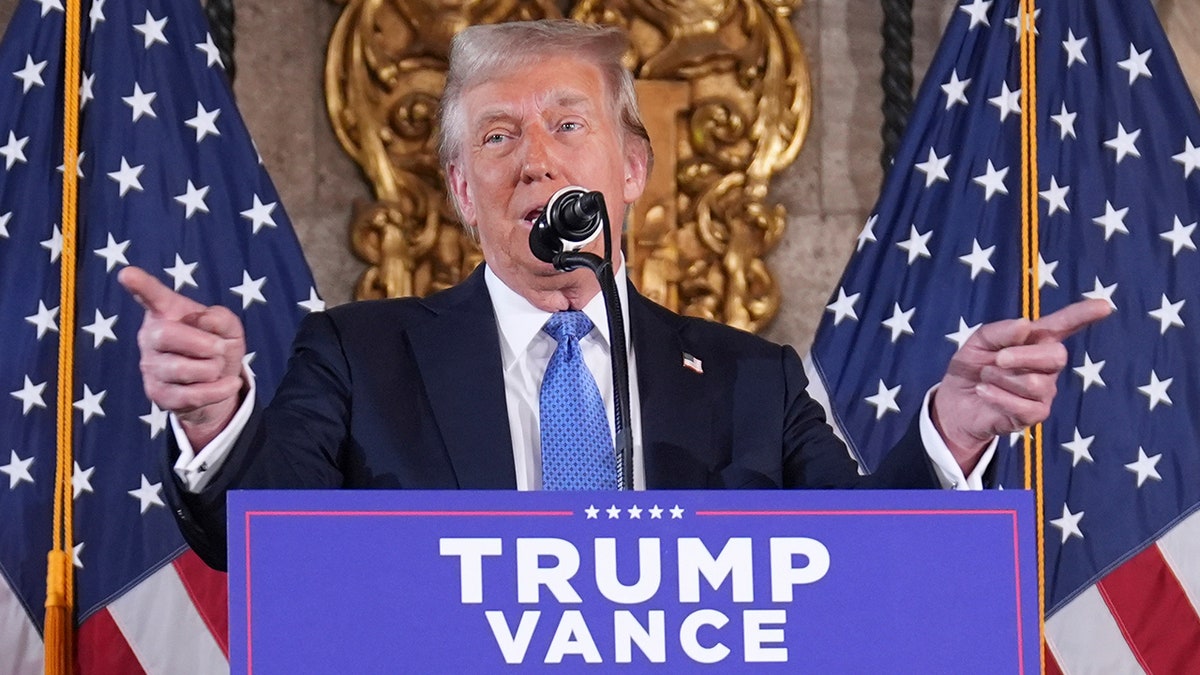
President-elect Trump speaks during a news conference at Mar-a-Lago, on Monday, Dec. 16, 2024, in Palm Beach, Florida. (AP/Evan Vucci)
It remains unclear how the Kurds will fair under a potential HTS regime, but Western security experts are increasingly concerned that Turkey could have an outsized amount of influence on the neighboring nation.
“The fall of Assad greatly amplified Turkey’s influence in Syria, giving unprecedented influence to his partners and proxies. If the United States wants to ensure that Syria has the best chance to become a reasonably free and stable country, it needs to keep a very close eye on [Turkish President Recep] Erdogan,” David Adesnik, vice president for research at the Foundation for Defense of Democracies, told Fox News Digital.
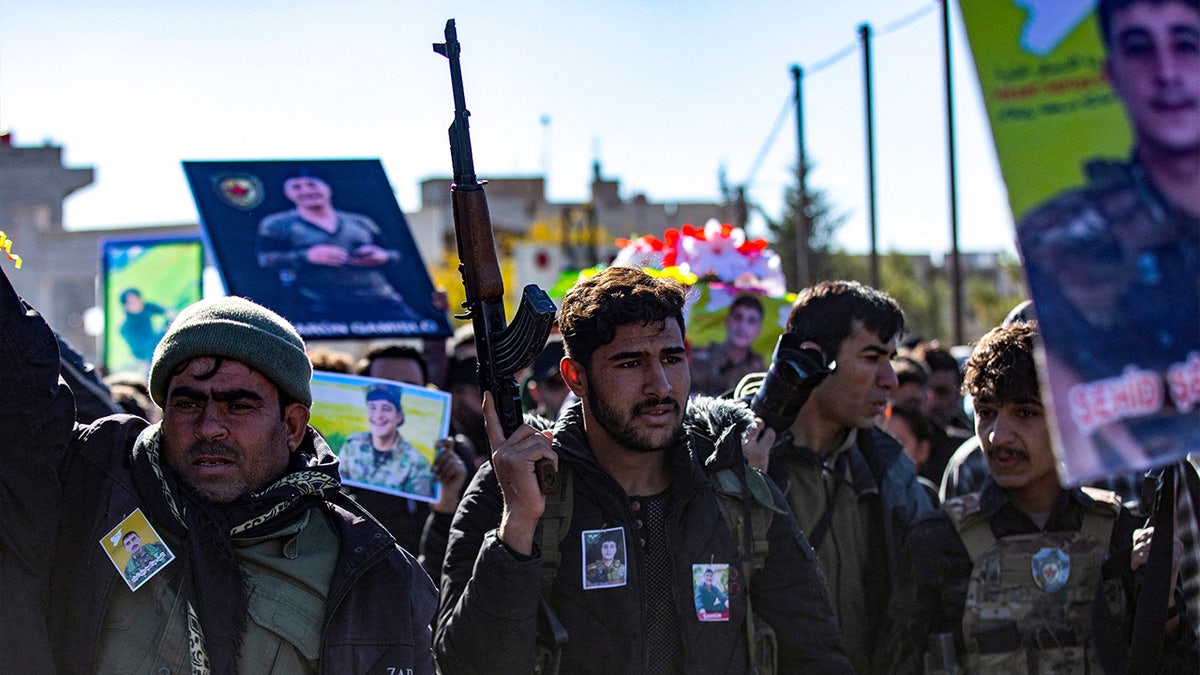
Comrades attend the funeral of five fighters of the Kurdish-led Syrian Democratic Forces who were killed during clashes with Turkish-backed opposition factions, in Qamishli in northeastern Syria on Dec. 14, 2024. (Delil Souleiman/AFP via Getty Images)
TURKEY HITS US-ALLIED KURDS IN SYRIA, IRAQ FOLLOWING TERRORIST ATTACK ON DEFENSE GROUP
Last week, the U.S. brokered a cease-fire agreement between the SDF and the SNA over the northeastern city of Manbij, where SDF coalition forces agreed to withdraw from the area after resisting attacks since Nov. 27, according to a Reuters report.
But sources told Fox News Digital on Monday that negotiations relating to the cease-fire had collapsed and that the SNA had begun building up military forces west of the Kurdish town of Kobani – roughly 35 miles east of Manbij – in an apparent threat to resume combat operations.
The terms of the cease-fire remain unclear, and neither the White House nor the State Department responded to Fox News Digital’s questions.
According to a statement released by the SDF, the mediation efforts by the U.S. failed to establish a permanent truce in Manbij-Kobani regions due to Turkey’s “evasion to accept key points,” including the safe transfer of civilians and Manbij fighters.
“Despite U.S. efforts to stop the war, Turkey and its mercenary militias have continued to escalate over the last period,” the SDF said.
A spokesperson for Turkey’s U.N. Mission did not immediately return Fox News Digital’s request for comment.
“The re-eruption of tensions around Kobani underlines the extent to which Assad’s fall has ‘opened the gates’ for Turkey and its SNA proxies in northern Syria,” Charles Lister, director of the Syria and countering terrorism and extremism programs at the Middle East Institute (MEI), told Fox News Digital. “For the first time, they’re free to act without a green light from Assad or Russia.”
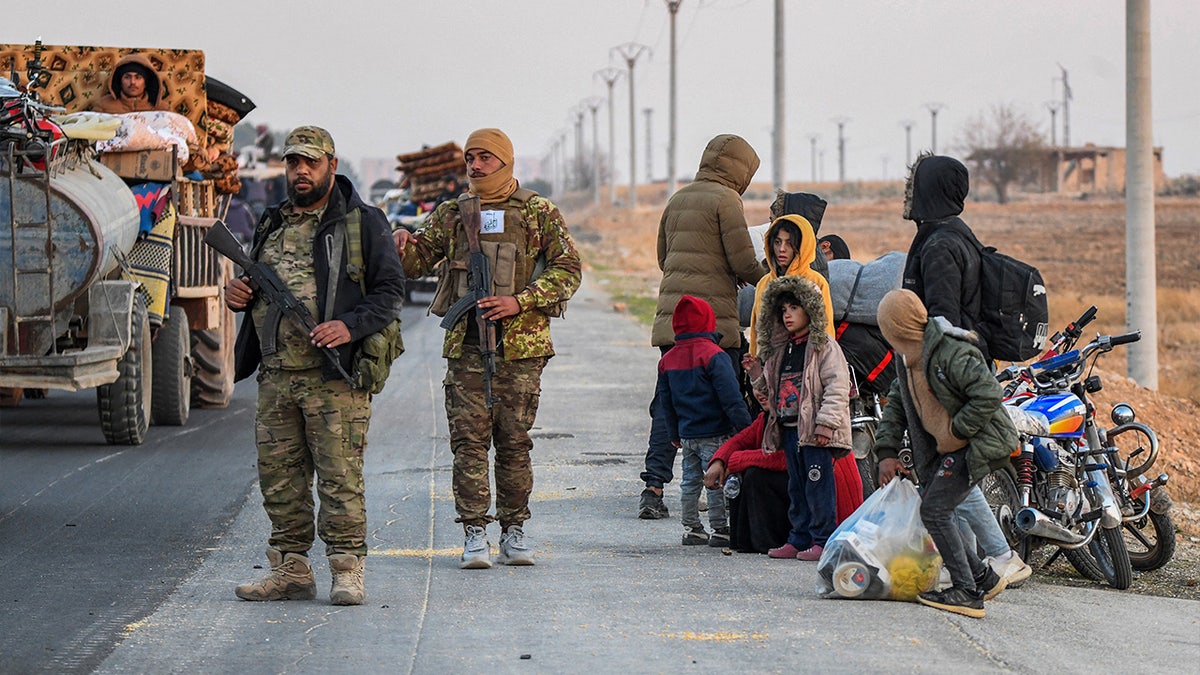
Anti-regime fighters stand on the roadside as displaced Syrian Kurds drive vehicles loaded with belongings on the Aleppo-Raqqa highway, fleeing Aleppo, on Dec. 2, 2024. (Rami Al Sayed/AFP via Getty Images)
The dynamic between the SDF and SNA forces, backed by Washington and Ankara, respectively, has long proved difficult to maneuver given that both the U.S. and Turkey are allies in NATO.
“After the loss of Tel Rifat and Manbij in recent weeks, the only possible obstacle to further SDF losses is the presence of U.S. troops – but Turkey’s role within NATO has always limited U.S. options,” Lister explained.
“[U.S. Central Command Gen. Michael’ Kurilla’s recent visit and the SDF’s willingness to cede Manbij spoke to the unprecedentedly isolated position the SDF currently faces,” he added in reference to a visit Kurilla made to Syria last week. “If the SDF is going to survive these challenges, it’s going to need to be extremely flexible, willing to concede on major issues, and rely heavily on U.S. diplomacy with Turkey.”
World
The Take: Why is Israel bombing Syria?

PodcastPodcast, The Take
As Syria opens a new chapter after Bashar al-Assad, Israel plans further settlement of the occupied Golan Heights.
As Syria navigates a fragile political transition, Israel has wiped out much of Syrian military assets, pushed further into Syrian territory and approved a plan to expand settlements in the occupied Golan Heights. How will Syria’s new leadership respond?
In this episode:
- Aymenn Jawad Al-Tamimi (@ajaltamimi), research fellow, Middle East Forum
Episode credits:
This episode was produced by Khaled Soltan and Tamara Khandaker, with Phillip Lanos, Spencer Cline, Hagir Saleh, Duha Mosaad, Chloe K Li and our host, Malika Bilal.
Our sound designer is Alex Roldan. Our video editors are Hisham Abu Salah and Mohannad Al-Melhem. Alexandra Locke is The Take’s executive producer. Ney Alvarez is Al Jazeera’s head of audio.
Connect with us:
@AJEPodcasts on Twitter, Instagram, Facebook, Threads and YouTube
-

 Technology1 week ago
Technology1 week agoStruggling to hear TV dialogue? Try these simple fixes
-

 Business1 week ago
Business1 week agoOpenAI's controversial Sora is finally launching today. Will it truly disrupt Hollywood?
-

 Politics4 days ago
Politics4 days agoCanadian premier threatens to cut off energy imports to US if Trump imposes tariff on country
-
/cdn.vox-cdn.com/uploads/chorus_asset/file/25782636/247422_ChatGPT_anniversary_CVirginia.jpg)
/cdn.vox-cdn.com/uploads/chorus_asset/file/25782636/247422_ChatGPT_anniversary_CVirginia.jpg) Technology5 days ago
Technology5 days agoInside the launch — and future — of ChatGPT
-
/cdn.vox-cdn.com/uploads/chorus_asset/file/25789444/1258459915.jpg)
/cdn.vox-cdn.com/uploads/chorus_asset/file/25789444/1258459915.jpg) Technology3 days ago
Technology3 days agoOpenAI cofounder Ilya Sutskever says the way AI is built is about to change
-

 Politics3 days ago
Politics3 days agoU.S. Supreme Court will decide if oil industry may sue to block California's zero-emissions goal
-

 Politics5 days ago
Politics5 days agoConservative group debuts major ad buy in key senators' states as 'soft appeal' for Hegseth, Gabbard, Patel
-
/cdn.vox-cdn.com/uploads/chorus_asset/file/25546252/STK169_Mark_Zuckerburg_CVIRGINIA_D.jpg)
/cdn.vox-cdn.com/uploads/chorus_asset/file/25546252/STK169_Mark_Zuckerburg_CVIRGINIA_D.jpg) Technology3 days ago
Technology3 days agoMeta asks the US government to block OpenAI’s switch to a for-profit



